SmartCrawl
Transform any website into an AI-powered API.

Product Details
SmartCrawl is an innovative online tool that allows users to convert any website into an API to automatically capture and process data through AI technology. This technology is important for developers and businesses that need to obtain data from websites because it simplifies the data integration process and improves efficiency. The product is currently in beta testing stage, and users can get a trial opportunity by joining the waiting list.
Main Features
How to Use
Target Users
SmartCrawl's target audience is primarily developers, data scientists, and businesses that need to automate data collection. It is suitable for users who need to obtain data from websites quickly and efficiently to support their applications, data analysis, or machine learning projects.
Examples
Developers use SmartCrawl to convert the content of news websites into APIs for real-time news aggregation applications.
Data scientists use SmartCrawl to crawl social media data and conduct sentiment analysis research.
Enterprises use SmartCrawl to obtain competitors' online product information and conduct market analysis.
Quick Access
Visit Website →Categories
Related Recommendations
Discover more similar quality AI tools
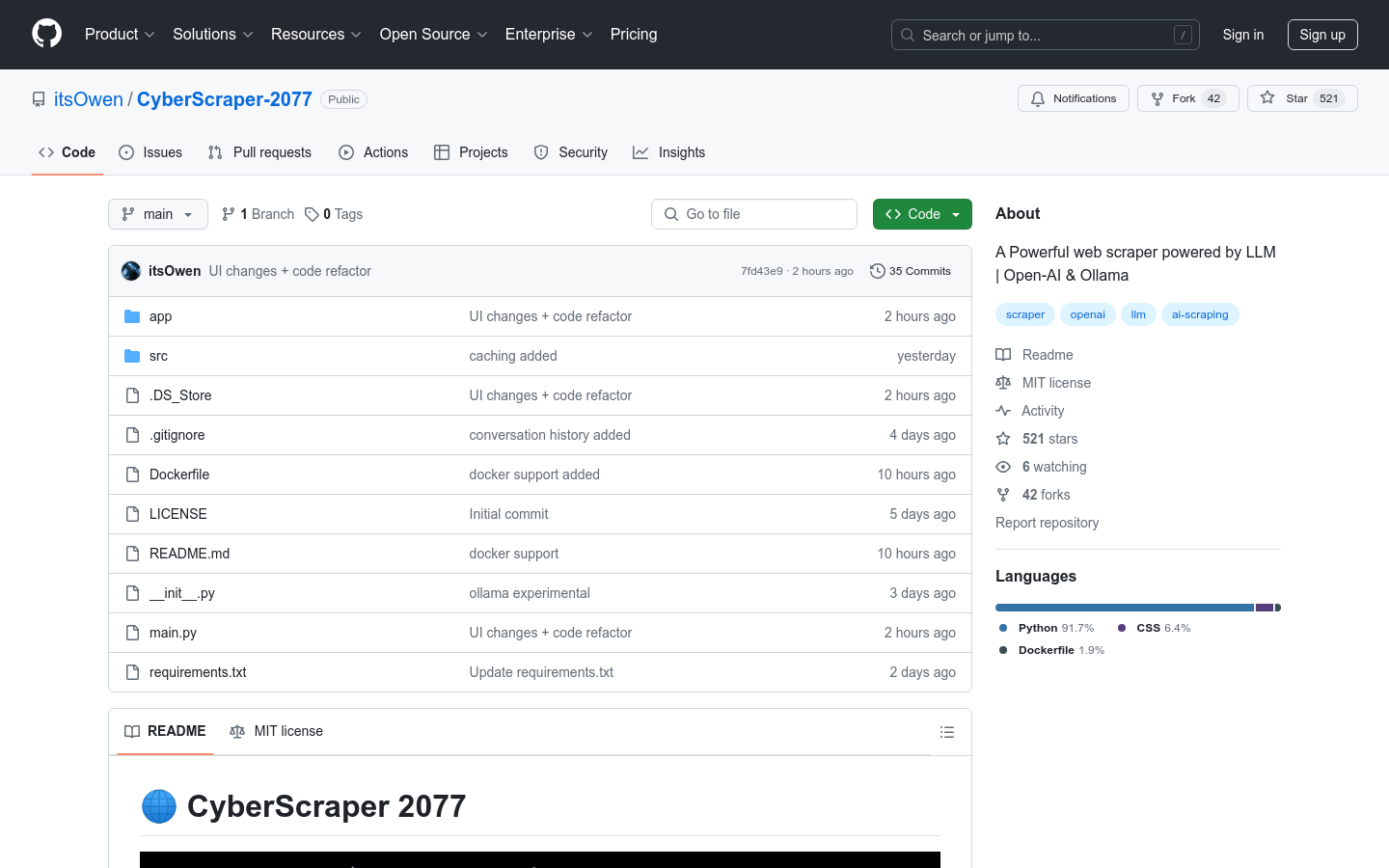
CyberScraper 2077
CyberScraper 2077 is an AI-based web crawler tool that uses large language models (LLM) such as OpenAI and Ollama to intelligently parse web content and provide data extraction services. Not only does this tool have a user-friendly graphical interface, it also supports multiple data export formats, including JSON, CSV, HTML, SQL, and Excel. Additionally, it features a stealth mode to reduce the risk of being detected as a robot, as well as ethical crawling features that adhere to robots.txt and website policies.
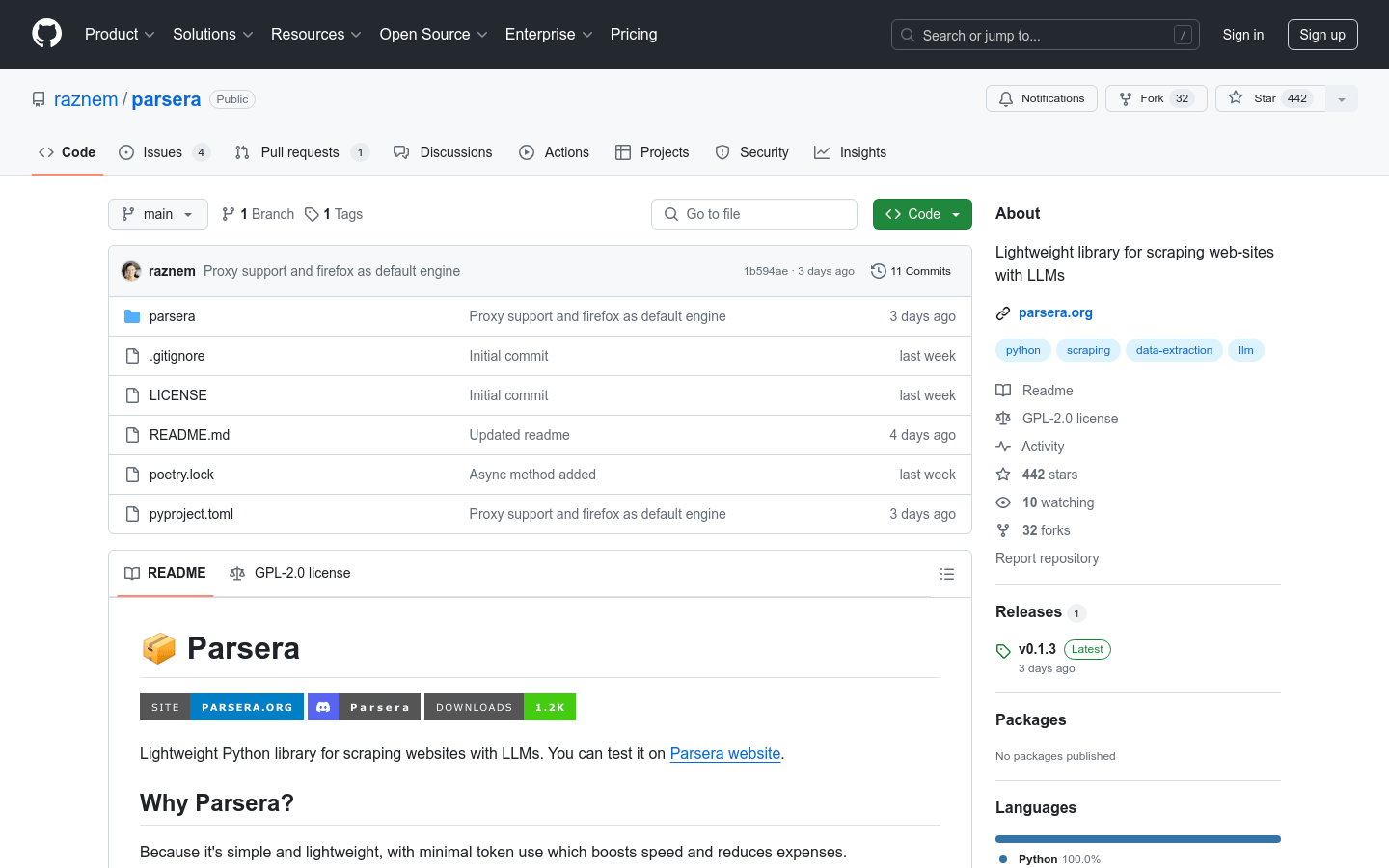
parsera
Parsera is a lightweight Python library specifically designed to be combined with large language models (LLMs) to simplify the process of website data scraping. It makes data scraping more efficient and cost-effective by using minimal tokens to increase speed and reduce costs. Parsera supports multiple chat models and can be customized to use different models, such as OpenAI or Azure.
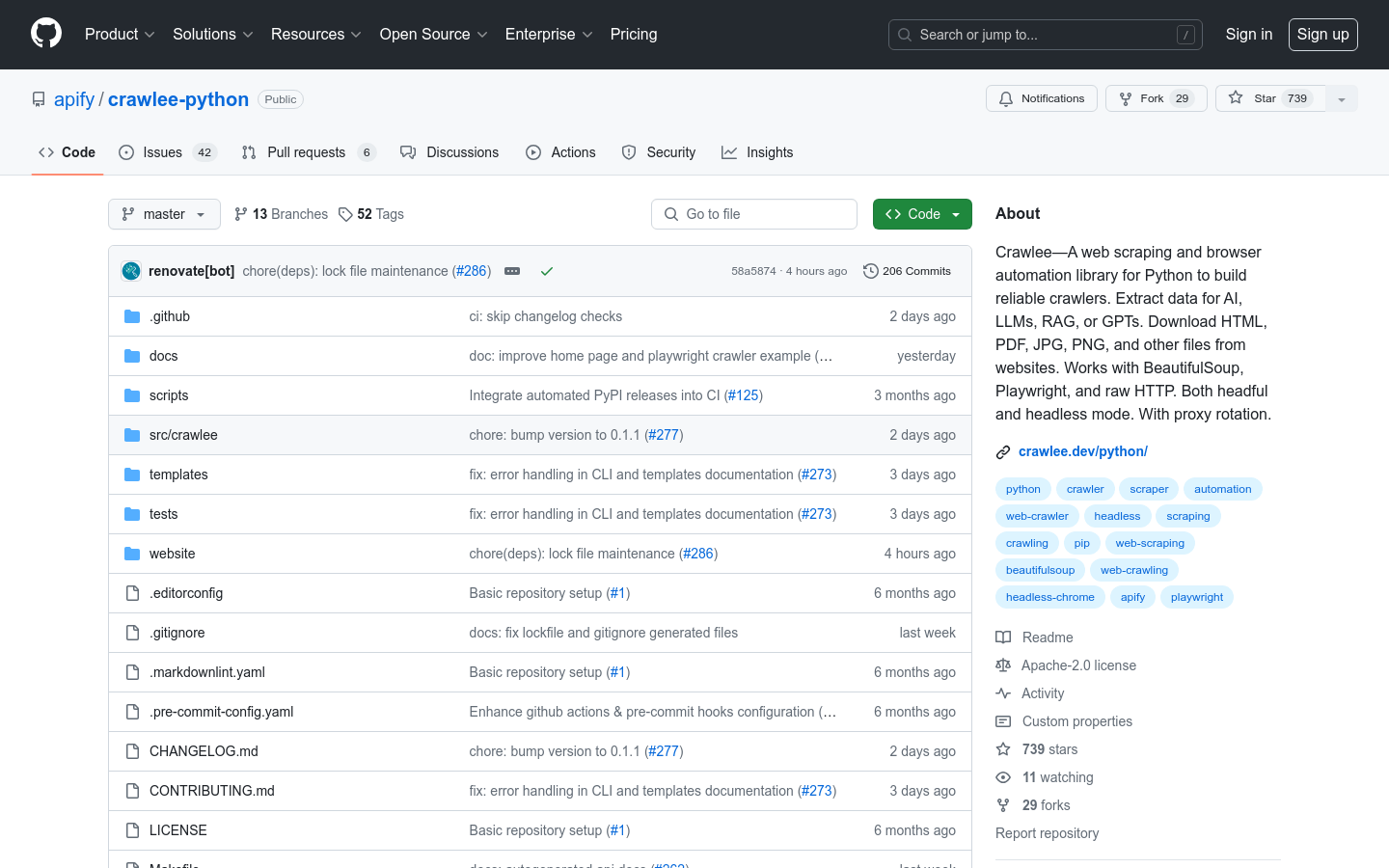
Crawlee
Crawlee is a Python web crawler and browser automation library for building reliable crawlers, extracting data for use in AI, LLMs, RAG or GPTs. It provides a unified interface to handle HTTP and headless browser crawling tasks, supports automatic parallel crawling, and adjusts based on system resources. Crawlee is written in Python and includes type hints to enhance the development experience and reduce errors. It features automatic retries, integrated proxy rotation and session management, configurable request routing, persistent URL queues, pluggable storage options, and more. Compared with Scrapy, Crawlee provides native support for headless browser crawling, has a simple and elegant interface, and is completely based on standard asynchronous IO.

Crawl4AI
Crawl4AI is a powerful, free web crawling service designed to extract useful information from web pages and make it available to large language models (LLMs) and AI applications. It supports efficient web crawling, provides LLM-friendly output formats such as JSON, cleaned HTML and Markdown, supports crawling multiple URLs at the same time, and is completely free and open source.

x-crawl
x-crawl is an AI-assisted crawler library based on Node.js. It uses powerful AI assistance functions to make crawler work more efficient, intelligent and convenient. It supports crawling of dynamic pages, static pages, interface data and file data, and also provides the ability to control pages such as automated operations, keyboard input, and event operations. In addition, it also has functions such as device fingerprinting, asynchronous synchronization, interval crawling, failure retry, rotation agent, priority queue and record crawling to adapt to different crawling needs. x-crawl has types, implements complete types through generics, is released under the MIT license, and is suitable for developers and enterprises who need to crawl data.

Cognitora
Cognitora is the next generation cloud platform designed for AI agents. Different from traditional container platforms, it utilizes high-performance micro-virtual machines such as Cloud Hypervisor and Firecracker to provide a secure, lightweight and fast AI-native computing environment. It can execute AI-generated code, automate intelligent workloads at scale, and bridge the gap between AI inference and real-world execution. Its importance lies in providing powerful computing and operation support for AI agents, allowing AI agents to run more efficiently and safely. Key benefits include high performance, secure isolation, lightning-fast boot times, multi-language support, advanced SDKs and tools, and more. This platform is aimed at AI developers and enterprises and is committed to providing comprehensive computing resources and tools for AI agents. In terms of price, users who register can get 5,000 free points for testing.

Macroscope
Macroscope is a programming efficiency tool that serves R&D teams. It has received US$30 million in Series A financing and has been publicly launched. The core functions focus on code management and R&D process optimization. By analyzing the code base to build a knowledge graph and integrating a multi-tool ecosystem, it solves the pain points of engineers being burdened with non-development work and managers having difficulty keeping track of R&D progress. Its technical advantage lies in multi-model collaboration (such as the combination of OpenAI o4-mini-high and Anthropic Opus 4) to ensure the accuracy of code review, and customer data is isolated and encrypted, compliant with SOC 2 Type II compliance, and promises not to use customer code to train models. Pricing is divided into Teams ($30/developer/month, at least 5 seats) and Enterprise (customized price) packages, targeting small and medium-sized R&D teams and large enterprises with customization needs, helping teams focus on core development and improving overall R&D efficiency.

100 Vibe Coding
100 Vibe Coding is an educational programming website focused on quickly building small web projects through AI technology. It skips complicated theories and focuses on practical results, making it suitable for beginners who want to quickly create real projects.

iFlow CLI
iFlow CLI is an interactive terminal command line tool designed to simplify the interaction between developers and terminals and improve work efficiency. It supports a variety of commands and functions, allowing users to quickly perform commands and management tasks. The key benefits of iFlow CLI include ease of use, flexibility, and customizability, making it suitable for a variety of development environments and project needs.

Never lose your work again
Claude Code Checkpoint is an essential companion app for Claude AI developers. Keep your code safe and never lost by tracking all code changes seamlessly.
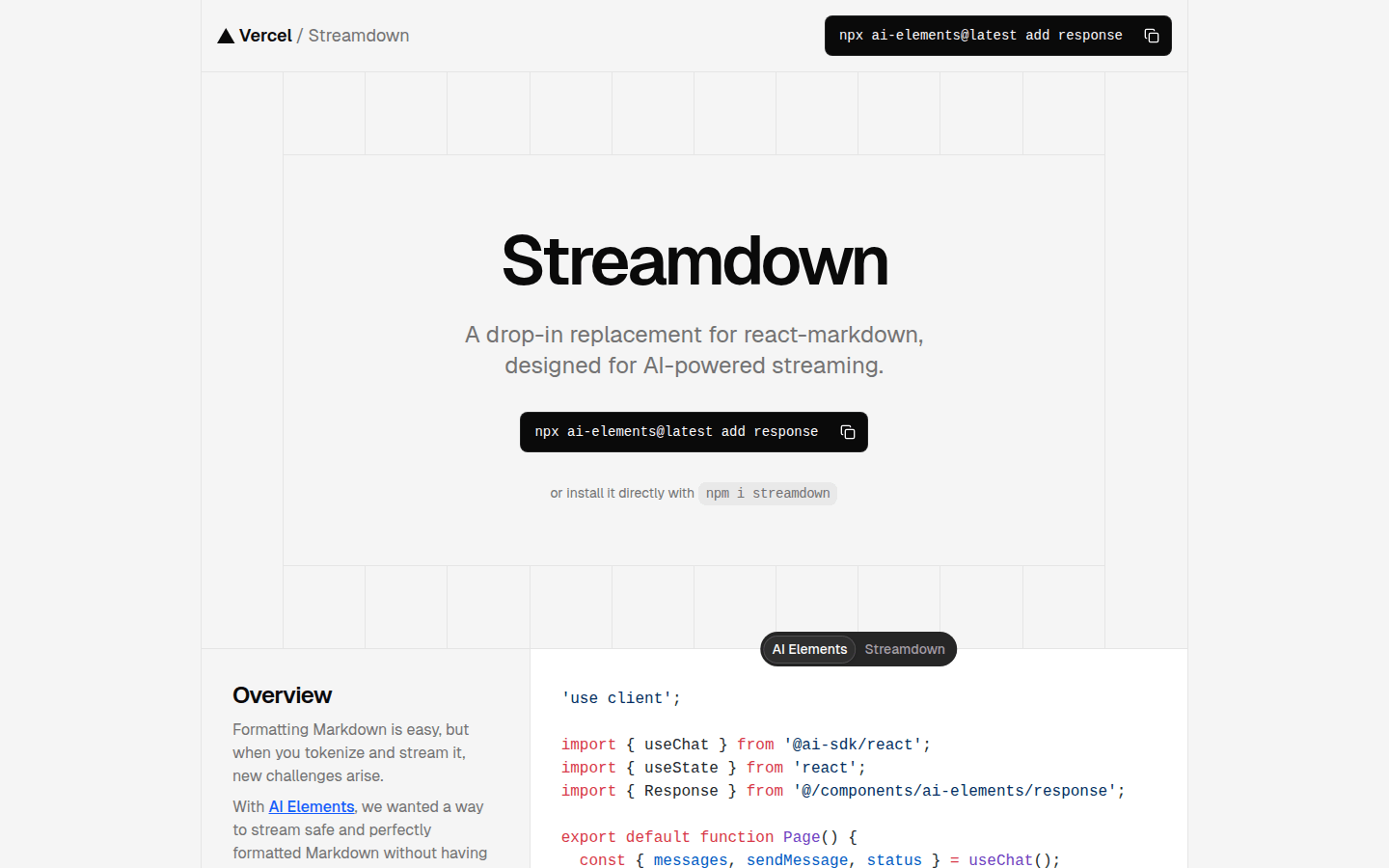
Streamdown
Streamdown is a plug-and-play replacement for React Markdown designed for AI-driven streaming. It solves new challenges that arise when marking and streaming, ensuring safe and perfectly formatted Markdown content. Key advantages include AI-driven streaming, built-in security, support for GitHub Flavored Markdown, and more.
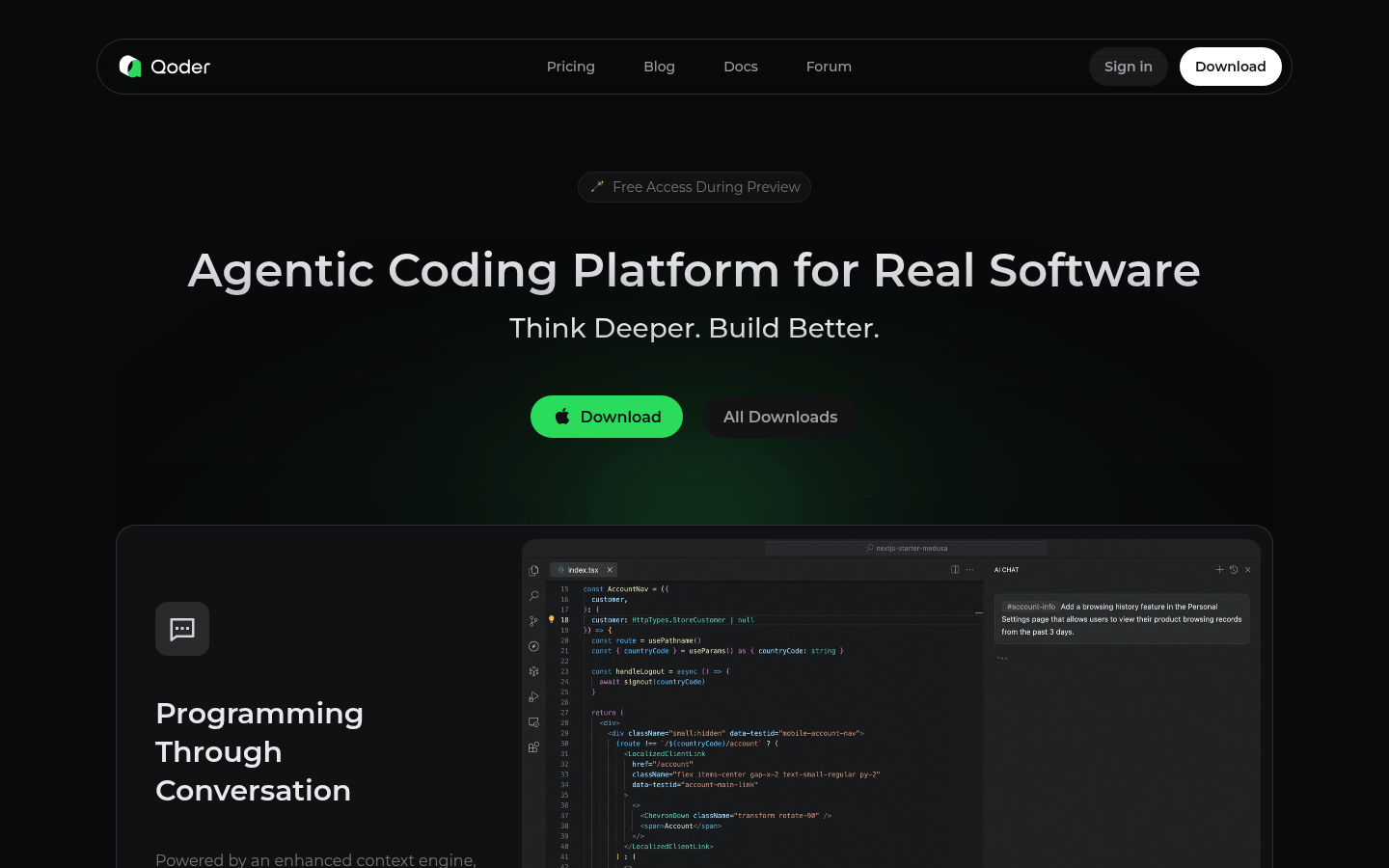
Qoder
Qoder is an agent coding platform that seamlessly integrates with enhanced context engines and intelligent agents to gain a comprehensive understanding of your code base and systematically handle software development tasks. Supports the latest and most advanced AI models in the world: Claude, GPT, Gemini, etc. Available for Windows and macOS.

Compozy
Compozy is an enterprise-grade platform that uses declarative YAML to provide scalable, reliable and cost-effective distributed workflows, simplifying complex fan-out, debugging and monitoring for production-ready automation.

Dereference
Claude Code is a futuristic IDE that seamlessly integrates with CLI AI tools such as Claude Code and Gemini CLI. Its main advantages are that it provides multi-session orchestration, atomic branching capabilities, and greatly improves developer productivity. The product is positioned to be designed for developers who want fast delivery.
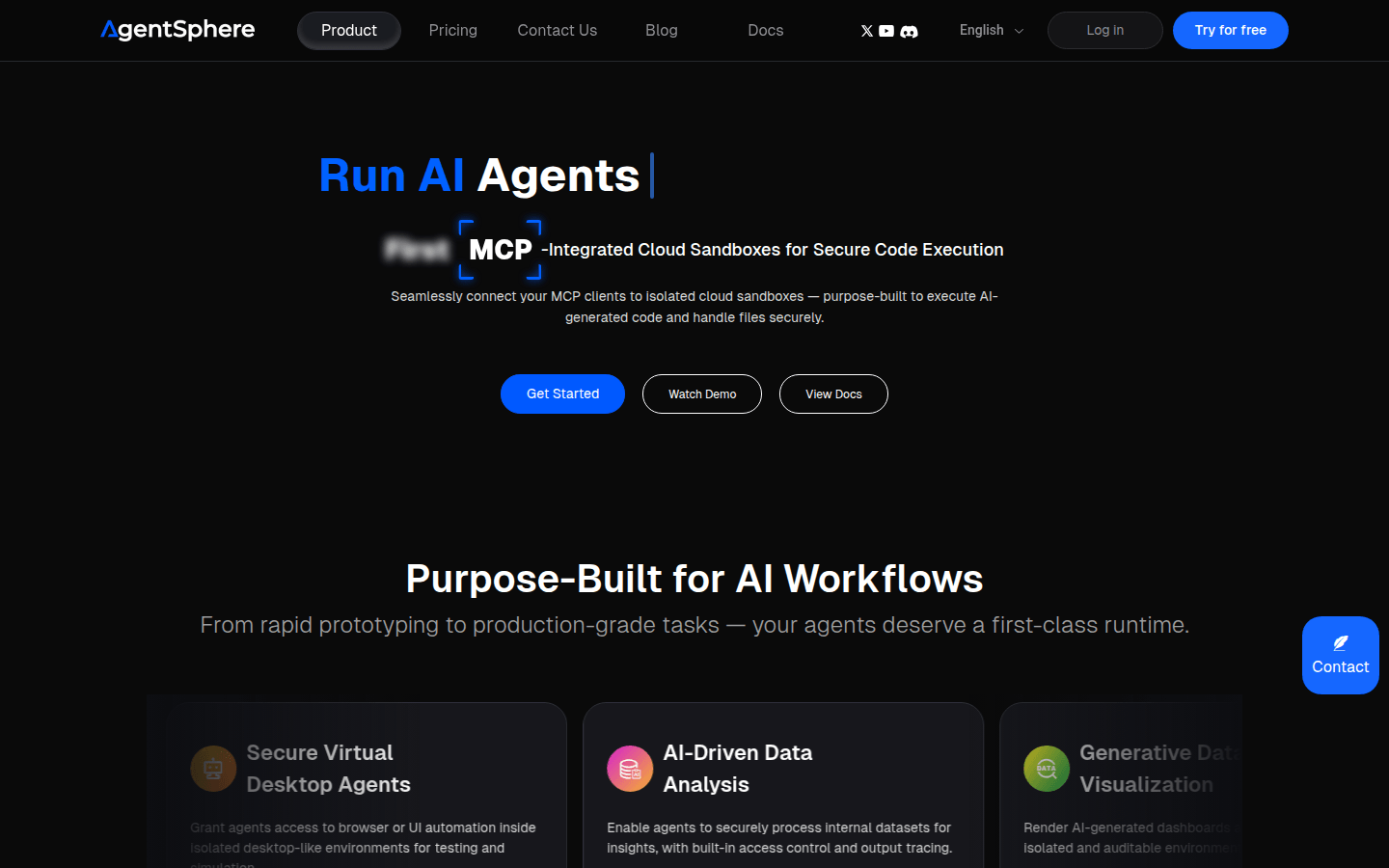
AgentSphere
AgentSphere is a cloud infrastructure designed specifically for AI agents, providing secure code execution and file processing to support various AI workflows. Its built-in functions include AI data analysis, generated data visualization, secure virtual desktop agent, etc., designed to support complex workflows, DevOps integration, and LLM assessment and fine-tuning.